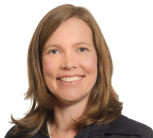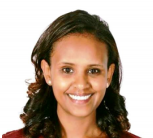Can the government communicate more effectively with people to encourage them to contribute more to initiatives such as the Solidarity Fund? By better understanding the factors that will nudge citizens into action, it can.
A sustainable post-COVID recovery for South Africa will be easier if citizens are willing to work together and share resources. This is particularly important given the high level of inequality in the country.
Dr Nicky Nicholls, Dr Carolyn Chisadza and Dr Eleni Yitbarek of the Department of Economics at the University of Pretoria are undertaking a three-year study to understand the factors that increase people’s willingness to contribute to public goods such as the Solidarity Fund. They are using incentivised behavioural economics games to see how varying the size of the beneficiary group influences people’s willingness to contribute to a public good. They also vary the effectiveness of contributions in the games to determine whether people are more willing to contribute if they believe that their donation will have a greater impact.
Initial results are positive: across the different scenarios, respondents were willing to contribute more than half of an amount of money given to them in the experiment to a fund that they assume will benefit others.
The 900 respondents were given four questions about their willingness to contribute to different scenarios, each with different incentives. The amounts varied between R300 and R600 per respondent. Two of the questions were based on a public goods game set-up: placed in teams of four, any money that they were willing to donate was pooled into a group investment that doubled the group’s return. This pooled money was then divided equally among the four participants. The other two questions involved the option to donate some of their money to the Solidarity Fund, where donations to the fund were either doubled or quadrupled.
The result suggests that people were willing to forgo their own benefit for a common cause. Moreover, people had high expectations: on average, the respondents assumed that others would contribute about half of their money to a shared resource.
With these encouraging preliminary results, the team will now be investigating the data further to identify ways to increase willingness to contribute to common resources or public goods. Such findings would facilitate informed policymaking, where the government might leverage the generosity of many citizens to reduce inequality and work towards a more sustainable future for all.
Watch the webseries episode in the sidebar to learn more.
Dr Nicky Nicholls, Dr Carolyn Chisadza and Dr Eleni Yitbarek
April 14, 2022


 Story
Story
This edition is curated around the concept of One Health, in which the University of Pretoria plays a leading role globally, and is based on our research expertise in the various disciplines across healthcare for people, the environment and animals.
 Story
Story
Paediatric neurosurgeon Professor Llewellyn Padayachy, Head of the Department of Neurosurgery at the University of Pretoria’s (UP) Steve Biko Academic Hospital, is redefining how brain-related diseases are diagnosed and treated, especially in low-resource settings. He’s at the forefront of pioneering work in non-invasive techniques to assess and measure raised pressure inside the skull,...
 Infographic
Infographic
Africa faces immense challenges in neurosurgery, such as severe underfunding, a lack of training positions and a high burden of disease. There is one neurosurgeon per four million people, far below the WHO’s recommendation of one per 200 000. This shortage, compounded by the lack of a central brain tumour registry and limited access to diagnostics, severely impacts patient outcomes.
Copyright © University of Pretoria 2025. All rights reserved.
Get Social With Us
Download the UP Mobile App